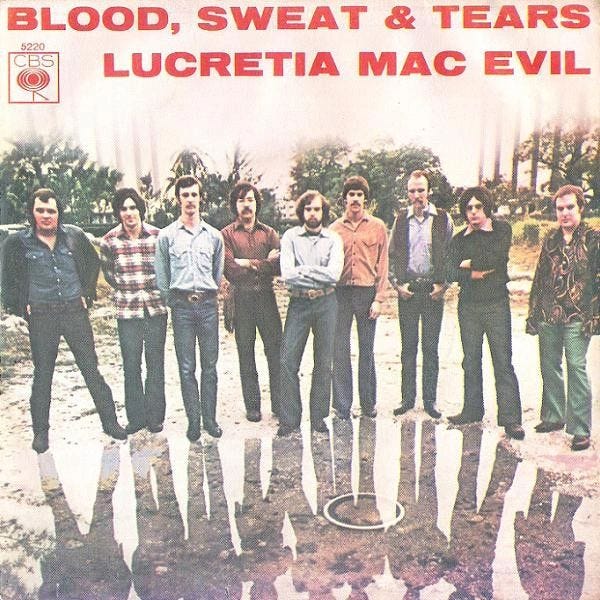I began learning magic at age seven, but it wasn't until I turned nine that my journey into magic got a major boost. That's when I first began reading about Harry Houdini, the famed magician and escape artist who was born 149 years ago. Oh, how I wanted to be Houdini.
Fourth grade is also when I bought my first TV Magic Cards, a trick deck that turned every card into the spectator's chosen card. If you dribbled the cards one way, they were all different. If you dribbled them the other way, they were all the same. (If that sounds impossible, check out the original commercial.) A miracle! All for $1.98.
The year I turned nine was also the same year I began my journey into justice, a magic of a different sort, and an impulse I’ve never been able to escape. It is a time that haunts me still, but because of it I remain firmly on the side of the oppressed, and opposed to bullies and all those who flaunt the rules and express outrage when they are held accountable.
And for that I can thank Lucretia Mac Evil.
The year was 1970; I was in fourth grade. My little red transistor radio was permanently tuned to the hottest station in Syracuse, WOLF-AM. WOLF was constantly playing "Lucretia Mac Evil" by the Chicago-like jazz-rock band out of Canada, Blood, Sweat & Tears, and we had the 45 at home. BS&T had a lead singer, David Clayton Thomas, who was only 29 but sounded like a fifty-something svengali when he hissed halfway through the song, "Oh, Lucy, you just so damn bad!" I loved the song because it moved, it had punchy brass, there was a swear word in it, and although I didn't understand the lyrics, I knew there was something adult-ish going on.
In a twist of fate you just can't make up, my fourth grade teacher also happened to be named Lucretia. Sister Lucretia. And she was, by any measure, evil. Now, I know stories abound about crazy Catholic school nuns, but in my eight years of parochial school, Sister Lucretia was the exception. All the other nuns who taught me were loving and wise, embodying the best of what I understood Catholicism to be.
But Sister Lucretia—Sister Lucretia was cruel. (And yes, we called her Lucretia Mac Evil behind her back.) I don't recall ever once seeing her smile. She had a throaty, craggly voice like Froggy on “The Little Rascals” TV show. She especially enjoyed making nine-year-old boys cry, none more so than my classmate Philip.
Every afternoon during English, Sister Lucretia would call on her favorites to read aloud from whatever selection in our textbook formed the day's lesson. Among the girls, she would call on the likes of Patty or Christine or Theresa, each of whom possessed sufficient self-confidence to stand up and read through a passage competently and without mispronouncing a word. (We were evenly divided into 22 girls and 22 boys, so Sister had many choices.) For the boys, though, Sister would start with someone well-spoken, like my best friend, Dion, or one of the smartest boys in the room, Matthew or Paul -- and work her way down to the more nervous among us. Girl or boy -- Sister alternated -- each child would take their turn, hurrying through a paragraph or two, then plunking themselves down in a heap in their seat, relieved to have made it through without Sister interrupting to correct a pronunciation or to say, "Hurry it up!"
Sister Lucretia always saved Philip for last. Philip, also known as Phil, was very shy, although he brightened whenever one of us called him "Phillip 66," like the gasoline brand that advertised heavily in those days. Like me, Phil was skinny and unathletic. We felt a sort of kinship and would play at each other's houses after school. In person, Phil was funny and smart and full of imagination, an excellent playmate and ideal companion. In public, especially when forced to stand at his desk and read aloud, all that went away and Phil fell apart.
We all knew what would happen every time Phil was called on; you could feel the tension in the room when Sister ordered him to stand. His face would turn pink as he began reading. A few sentences in, he would start to stammer. Some of us would look down or turn away as the blood rushed to his face, making for a kind of litmus terror test, going from pink to rosy to beet red. If Phil hesitated, Sister would sneer, "C'mon, c'mon!" If he mispronounced a word, Sister would correct him, sometimes adding, "Didn't you do your homework? Do you want to grow up to be stupid?"
Sister Lucretia was a bully, no doubt. Unfortunately, her behavior encouraged some of the other boys to follow suit, and they did so in the one place where you could pick on someone away from the observant eyes and ears of the teachers: in the boys' room. I recall going to "the lav" after a number of these medieval English torture sessions -- with such a large class there would be many of us in the lav at the same time -- only to see and hear other boys picking on Phil for being a crybaby. There he would be, standing at a urinal, looking down while other kids berated him, his face turning red all over again.
That is when, for me, the fire was lit. That's when I began to understand that justice is not guaranteed and we have to speak out. That we must stand with those being oppressed.
I literally did. Whenever I went into the lavatory and could see Phil being picked on, I would stand next to him. We would go to the sinks together to wash our hands even as some boys would continue to taunt Philip, and I would walk out with him. Sometimes other boys would defend Philip as well. I also remember protesting to some of the offenders in private when we were alone in the lav together, without Phil present.
Phil and I didn't say anything to each other about this. It was understood. The thing is, I knew he would do the same for me if he could and if he had to. What I already knew at that young age is that that didn't matter. It didn't matter if my friend could do something for me, for in fact, by sticking with him I was doing something for my own soul. I was providing salve to the wound opening up in my heart, at nine years of age, that people of any age could be cruel and unfair. I think even then I expected it of my nine-year-old peers. I didn't expect it from a sixty-year-old woman whom my parents had entrusted to give their child a good Catholic education.
I imagine it is different for everyone, the time or the moment when a plea for fairness takes hold of the heart because suddenly the world doesn't appear as just or as kind as we had been led to believe. But just like those TV Magic Cards, although we are all so seemingly different, in some ways we are all the same, and I suspect everyone has this desire for a more just and peaceful world. Even Sister Lucretia probably wished for justice, too, although she had a funny way of showing it. I now think of her as someone who must have been hurting and possibly even self-loathing, for how else could you be so mean toward anyone, especially a child, if you had learned how to love yourself?
Fifty years on, I'm grateful to my own Lucretia Mac Evil. She was the first person to make me realize that it would not be easy to build the world my other Catholic teachers assured me already existed. She made me understand that there would always be bullies. That sometimes the bully would be granted power over others. That sometimes even the crowd would side with the bully, inexplicably. But Sister Lucretia also inspired me to stand with the oppressed. I will never forget the sight of Phil shaking and crying standing next to his desk. To this day, I look for him everywhere. And when I see him, I offer my support, and we both become stronger. It's not what the bullies intended. But then again, they don't understand magic at all.
If you like this newsletter, please share and encourage a friend to subscribe. You (and they) can learn more about me and my work at magistry.org.






